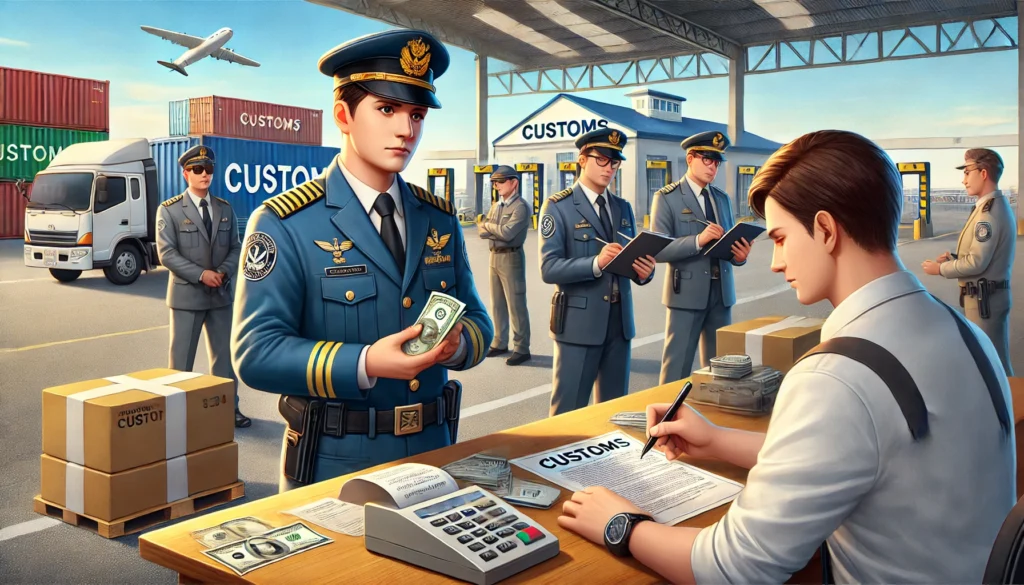Table of Contents
ToggleHow to Avoid Customs Penalties: A Comprehensive Guide for Exporters and Importers
Introduction
Customs penalties can pose significant financial and operational challenges for businesses engaged in international trade. Whether due to misclassification of goods, inaccurate documentation, or failure to comply with regulations, customs penalties can delay shipments, increase costs, and damage business reputations. Avoiding customs penalties is essential for ensuring smooth cross-border trade and maintaining compliance with international trade laws.
This article provides a comprehensive guide on how to avoid customs penalties in both export and import transactions. It outlines common causes of customs penalties, preventive measures, and best practices to maintain regulatory compliance.
Understanding Customs Penalties
Customs penalties are fines or charges imposed by customs authorities for violations of customs laws and regulations. These penalties can range from minor fines to significant monetary penalties, confiscation of goods, and even legal action. Common reasons for customs penalties include:
Misdeclaration of goods
Incomplete or inaccurate documentation
Non-payment of customs duties
Violation of import/export restrictions
Failure to comply with customs regulations
Understanding the types of customs penalties and their implications is the first step in avoiding them.

Common Causes of Customs Penalties
1. Inaccurate Documentation
One of the most common reasons for customs penalties is incomplete or inaccurate documentation. Errors in invoices, bills of lading, or shipping documents can lead to delays and fines.
How to Avoid:
Double-check all documentation for accuracy before submission.
Use standardized templates for invoices and shipping documents.
Ensure consistency in product descriptions, quantities, and values.
2. Misclassification of Goods
Incorrect classification of goods under the Harmonized System (HS) codes can result in underpayment or overpayment of customs duties, attracting penalties.
How to Avoid:
Use the correct HS codes for all products.
Seek guidance from customs brokers or trade consultants.
Regularly review tariff codes and classification rules.
3. Under-Valuation of Goods
Deliberately declaring a lower value for goods to reduce customs duties is illegal and can result in severe penalties.
How to Avoid:
Declare the true transaction value of goods.
Maintain accurate purchase invoices and contracts.
Be transparent with customs authorities.
4. Non-Payment or Late Payment of Customs Duties
Failure to pay customs duties on time can result in penalties and shipment delays.
How to Avoid:
Calculate customs duties accurately.
Pay duties promptly.
Use customs duty payment portals where available.
5. Non-Compliance with Trade Regulations
Failure to comply with import/export regulations, such as licensing requirements or restricted goods lists, can lead to severe penalties.
How to Avoid:
Stay updated on trade regulations.
Obtain necessary permits and licenses.
Engage with legal experts for compliance advice.
Preventive Measures to Avoid Customs Penalties
1. Comprehensive Documentation Management
Maintaining accurate and complete documentation is critical for customs compliance.
Tips:
Use automated documentation management systems.
Create a checklist of required documents for each shipment.
Archive all documents for future reference.
2. Engage Professional Customs Brokers
Customs brokers have the expertise to navigate complex customs regulations and can help prevent costly mistakes.
Benefits of Hiring Customs Brokers:
Accurate document preparation
Proper tariff classification
Timely payment of duties
Liaison with customs authorities
3. Regular Staff Training
Train employees on customs regulations, documentation requirements, and trade compliance.
Training Topics:
HS code classification
Documentation accuracy
Trade regulations and compliance
Customs duty calculations
4. Pre-Shipment Inspection
Conducting pre-shipment inspections helps ensure that goods meet the declared specifications and comply with regulatory standards.
Key Inspection Points:
Product quality and quantity
Packaging and labeling
Compliance with trade regulations
5. Use of Technology and Automation
Leveraging technology can streamline customs processes and reduce human errors.
Recommended Tools:
Customs compliance software
Electronic Data Interchange (EDI) systems
Automated tariff classification tools
Best Practices for Customs Compliance
1. Stay Informed
Keep up to date with changes in customs regulations, trade agreements, and duty structures.
Sources of Information:
Government trade websites
Industry publications
Trade associations
2. Establish Internal Compliance Procedures
Create internal procedures to ensure compliance with customs regulations.
Components of a Compliance Procedure:
Documentation review checklist
Customs duty calculation guide
Escalation procedures for regulatory issues
3. Conduct Internal Audits
Regular internal audits help identify gaps in compliance and rectify them before they lead to penalties.
Audit Focus Areas:
Documentation accuracy
Payment of duties
Compliance with import/export regulations
4. Collaborate with Trade Compliance Experts
Engage trade consultants or legal experts to review transactions and provide guidance on customs compliance.
5. Build Strong Relationships with Customs Authorities
Establishing a positive relationship with customs authorities can facilitate smoother transactions and quicker dispute resolution.
Dealing with Customs Penalties
Despite best efforts, businesses may still encounter customs penalties. Here’s how to handle them effectively:
Understand the Penalty: Request detailed information from customs authorities regarding the penalty.
Seek Legal Advice: Consult legal experts for guidance on challenging or negotiating the penalty.
Rectify the Issue: Correct the underlying issue that led to the penalty.
Appeal Process: Follow the appeal procedures if you believe the penalty is unjustified.
Implement Preventive Measures: Review internal processes to prevent future penalties.
Conclusion
Avoiding customs penalties is essential for the smooth and cost-effective operation of international trade. By understanding common causes of customs penalties, implementing preventive measures, and adopting best practices, businesses can significantly reduce the risk of non-compliance. Engaging professional customs brokers, leveraging technology, and maintaining clear communication with customs authorities can further streamline the customs clearance process.
With proper planning, compliance, and vigilance, businesses can navigate the complexities of customs regulations and achieve seamless cross-border trade.
